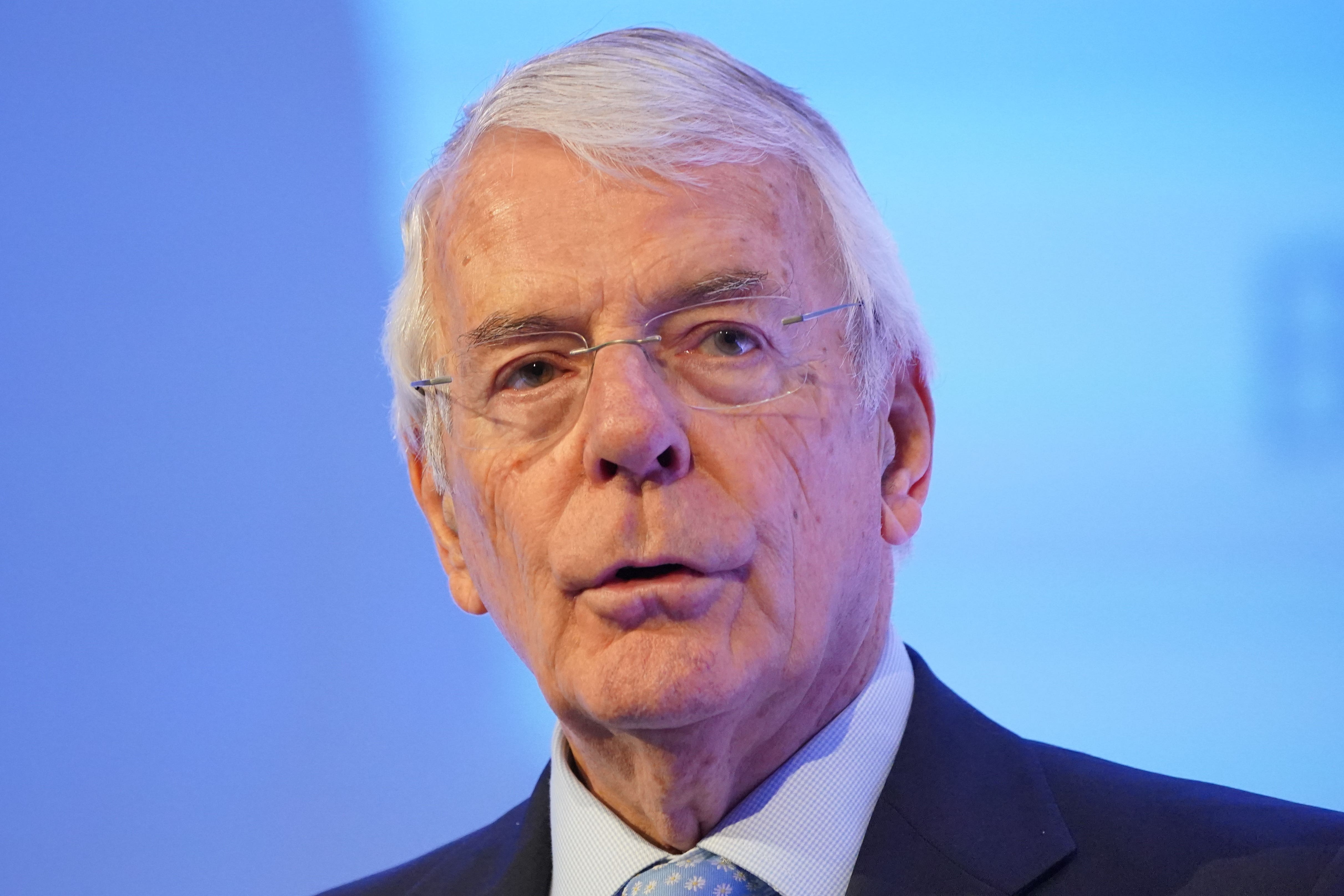If the Tory party wants to get back into power, it would do well to listen to John Major
Editorial: Major has earned the right to be listened to. He is, after all, a man who knows more than most about the Tories’ long-term civil war and the challenge of settling the UK’s relationship with the rest of Europe

There’s a cycle to the afterlife of former prime ministers. It usually follows a set pattern: immediate reputational destitution, a gradual process of rehabilitation – and then the full flowering of wisdom and respect. Eventually, with perspective, the release of secret papers and some debate, their place in history becomes settled.
Sir John Major, having left office in what was, until this year, the worst defeat for his party at a general election, is now firmly on the upswing of his fortunes. Now past his 80th year – with the garter ribbon, the Companion of Honour, and the weight of experience to back him up – Sir John’s contribution to public life has been acknowledged. He has earned the right to be listened to. He is, after all, a man who knows more than most about the Tories’ long-term civil war and the challenge of settling the UK’s relationship with the rest of Europe.
Rightly keeping his counsel as the general election approached, he is now at liberty to put a few home truths to what is still his party (and has been since he joined it in 1959). Taking the doomed Rwanda plan as emblematic of where the party went wrong he speaks for many: “I thought it was un-Conservative, un-British, if one dare say in a secular society, unchristian and unconscionable, and I thought that this is really not the way to treat people.”
He is also right to scorn the siren voices seeking some arrangement, even merger, with Nigel Farage’s latest vehicle, Reform UK. As Sir John points out, there is an element of panic in some Conservative circles about Reform’s performance at the election, which actually yielded only five parliamentary seats.
Many more votes and seats were lost to Labour and the Liberal Democrats, even in some spots to the Greens – and the key to Conservative recovery lies in appealing to those voters and persuading them that the party is once again a fit and proper organisation with which to entrust the running of the country.
It was a long record of incompetence, division, sleaze and corruption that gifted all those votes and seats to opposition parties on 4 July. It was, in other words, the manifest failures of Boris Johnson and Liz Truss in particular, rather than the charismatic personality of Mr Farage, that led them to their historic defeat.
More to the point, even if it were the case that to win the power they need to “unite the right” – electorally and practically improbable – it would simply be the wrong thing for the Conservatives to try to do. It would mean a government that would not be worthy of the name Conservative.
It would mark an entirely unnecessary surrender of the party to an unserious bully – and would constitute a betrayal of everything the party should ever stand for: a pluralistic democracy and the rule of law. The fault in the recent Conservative experiment with Eurosceptic populism is that it dragged the party further to the hard right and into a bogus ideology that came to be known as “cakeism” – selling policies such as unfunded tax cuts on a false prospectus. Where, as Sir John asks, are the Brexit benefits?
Sir John, unfortunately, is still despised and reviled by certain sections of his party for his role in the fall of Margaret Thatcher in 1990 (though she herself bore responsibility for her mistakes), and the Maastricht Treaty he and Douglas Hurd negotiated.
Yet the reality is that the Maastricht opt-outs on the euro and other concessions were an act of supreme statesmanship, even if now wiped from the Tory folk memory. So was the thriving economy bequeathed by Ken Clarke to Labour in 1997, subsequently eclipsed by the scale of the Blair landslide. There was certainly “sleaze”, Black Wednesday and the usual blunders, but the Conservatives should really look back on the Major years as the party’s last truly successful government.
Instead, the current crop of leadership contenders see it, absurdly, as some kind of period of closet “woke” socialist rule. Sir John won’t say who, if any of them, he is backing but merely that: “I would like to support someone who’s going to look at the long-term problems and make a suggestion as to which direction we should go and bring people back into the party who are genuinely centre right.”
He hardly needs to add that none of the four candidates still running – Kemi Badenoch, James Cleverly, Tom Tugendhat and Robert Jenrick – show any sign of filling that particular bill. Still less is there any chance that the Conservatives are yet ready to retreat from their disastrous embrace of Brexit and to renounce their inexplicable Eurosceptic spasm.
The Conservatives had to wait 13 years to get back into office after their divisions and exhaustion led inexorably to the 1997 disaster. They only did so when they at last heeded David Cameron’s pleas to stop banging on about Europe. Even then they only managed to form a government with the help of the Liberal Democrats.
The Tories today are in what Sir John might call a not inconsiderably worse position. They need to start listening to their former leader and many others who’ve lost faith in them – and to ignore those who would wish to destroy the party. Maybe then they can once again lead a nation at ease with itself.






Join our commenting forum
Join thought-provoking conversations, follow other Independent readers and see their replies
Comments